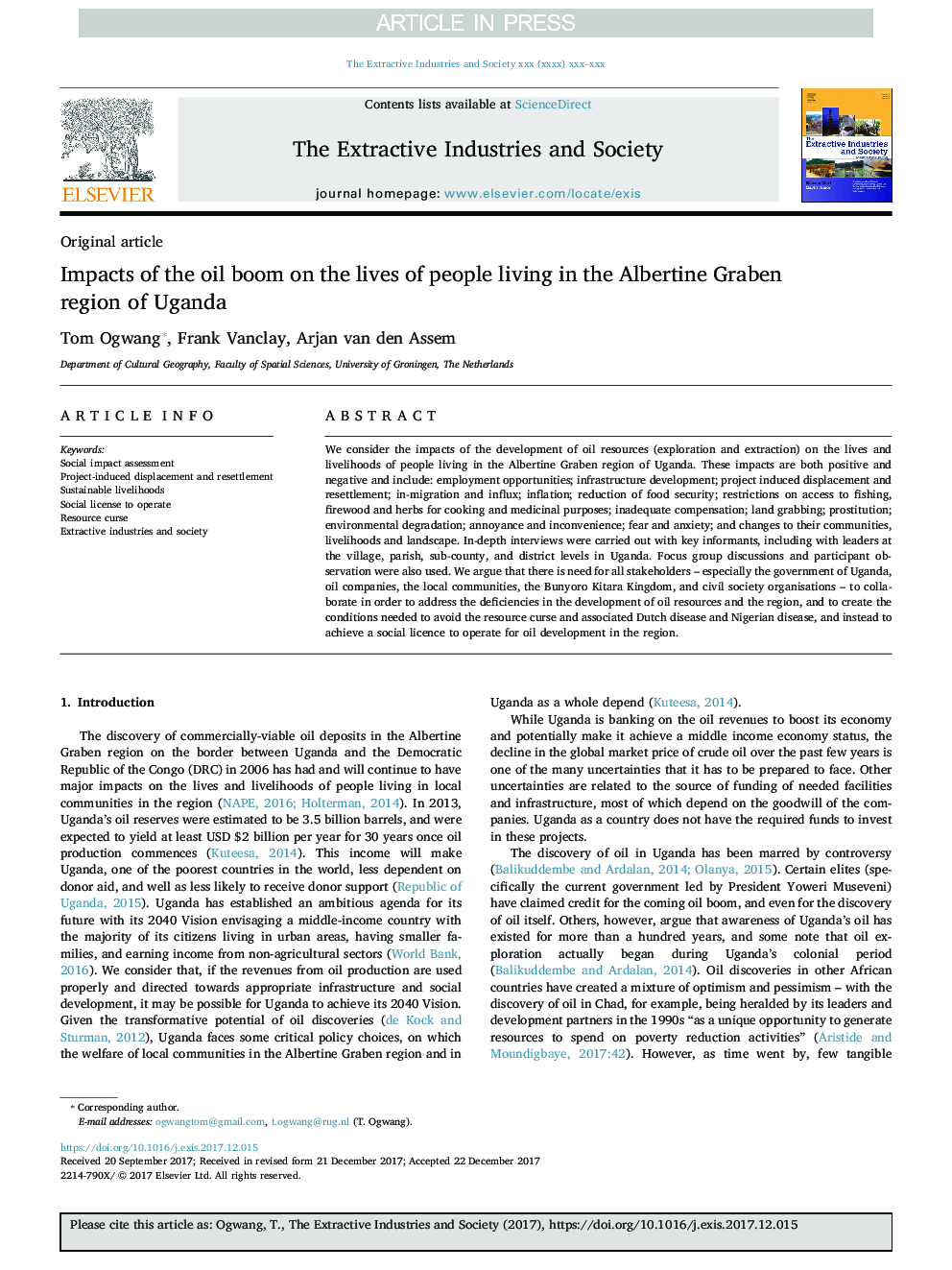| Article ID | Journal | Published Year | Pages | File Type |
|---|---|---|---|---|
| 7454251 | The Extractive Industries and Society | 2018 | 6 Pages |
Abstract
We consider the impacts of the development of oil resources (exploration and extraction) on the lives and livelihoods of people living in the Albertine Graben region of Uganda. These impacts are both positive and negative and include: employment opportunities; infrastructure development; project induced displacement and resettlement; in-migration and influx; inflation; reduction of food security; restrictions on access to fishing, firewood and herbs for cooking and medicinal purposes; inadequate compensation; land grabbing; prostitution; environmental degradation; annoyance and inconvenience; fear and anxiety; and changes to their communities, livelihoods and landscape. In-depth interviews were carried out with key informants, including with leaders at the village, parish, sub-county, and district levels in Uganda. Focus group discussions and participant observation were also used. We argue that there is need for all stakeholders - especially the government of Uganda, oil companies, the local communities, the Bunyoro Kitara Kingdom, and civil society organisations - to collaborate in order to address the deficiencies in the development of oil resources and the region, and to create the conditions needed to avoid the resource curse and associated Dutch disease and Nigerian disease, and instead to achieve a social licence to operate for oil development in the region.
Related Topics
Life Sciences
Environmental Science
Management, Monitoring, Policy and Law
Authors
Tom Ogwang, Frank Vanclay, Arjan van den Assem,
